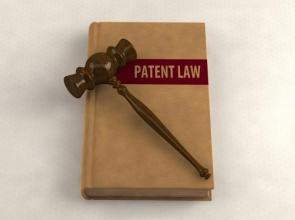- Intellectual property litigators represent the parties to lawsuits involving patents, copyrights, and trademarks in federal court.
- Many trademark and trade secret cases are litigated under state law.
- In patent infringement cases, judges hold Markman (claim construction) hearings which can define the scope of litigation fairly early on.
- Attorneys research and evaluate not only legal issues but factual issues such as competing technologies and products in the market.
- This work can be very high stakes and influence the survival and success of companies.
- Because the work is so important to companies, at the highest level, many top firms want their attorneys to have advanced science degrees even when not required for the litigation.
Why Do Intellectual Property Litigation Attorneys Enjoy Their Jobs?
- Attorneys who enjoy intellectual property litigation enjoy learning about new markets, technologies, businesses, and working with experts.
- This is also a good practice area for attorneys with science backgrounds who may be interested in litigation, but not necessarily patent prosecution.
- This practice area can be extremely profitable for law firms on both the defense and the plaintiff's side and law firms take this practice area very seriously.
- This is a very adversarial practice where attorneys will fight hard and companies will pour every resource they can into defending claims.
- Law firms and their attorneys can bill a ton of hours on these cases, and plaintiff's side recoveries in the hundreds of millions of dollars are not uncommon.
What Are the Difficulties of Being an Intellectual Property Litigation Attorney?
- Attorneys who do not like this work may not like the fact that this practice is so adversarial.
- This practice can also be feast or famine, and law firms can build up huge teams of attorneys to staff cases only to let them all go as soon as a case settles, or goes away.
- Attorneys who have no interest in technology also often do not feel that comfortable with this practice and the fact that people are not involved.
- The larger cases can also be huge, and on the largest cases attorneys may not feel like they have much input on the sum of what happens.
How Easy Is It to Move Laterally as an Intellectual Property Litigation Attorney?
- This practice area has slowed dramatically since a series of Supreme Court decisions in 2011 and 2013 have made life very difficult for patent trolls and slowed a great deal of the patent litigation.
- Since these decisions, the litigation landscape with patent litigation has slowed dramatically, and patent litigation has become more of a dying practice area than a growing one.
- In prior years, patent litigation was among the busiest practice areas for the largest law firms.
- Intellectual Property Law Practice Areas Explained: The Differences Between Patent Law, Trademark Law, Copyright Law, Trade Secret Law and Licensing Law Explained
- Guide to Intellectual Property Law
- Why Does Litigation Hiring Seem to Take So Much Longer Than Hiring for Other Practice Areas?
- Is Contract Work the New Normal for Litigators?
- Why Most Attorneys Have No Business Being Litigators: Fifteen Reasons Why You Should Not Be a Litigator
Intellectual Property Case Studies
- Senior Pharma IP Associate Moves to a Larger Firm in a New Market
- Do Not Lose Hope if You Can't Find a Job Quickly - Even Unemployed Candidates Can Find Jobs
- Attorney Returns to NYC Area with Boutique Firm
- A New Life on a New Coast for a Diverse Soft IP Star
- Highly-Credentialed Partner-Level Relocation to Chicago with IP Boutique
- Junior BigLaw IP Associate Moves to a Better Firm to Focus on Chosen Niche Practice Area
- Senior Intellectual Property Litigator Laid Off from a Major Law Firm
About Harrison Barnes
Harrison Barnes is a prominent figure in the legal placement industry, known for his expertise in attorney placements and his extensive knowledge of the legal profession.
With over 25 years of experience, he has established himself as a leading voice in the field and has helped thousands of lawyers and law students find their ideal career paths.
Barnes is a former federal law clerk and associate at Quinn Emanuel and a graduate of the University of Chicago College and the University of Virginia Law School. He was a Rhodes Scholar Finalist at the University of Chicago and a member of the University of Virginia Law Review. Early in his legal career, he enrolled in Stanford Business School but dropped out because he missed legal recruiting too much.
Barnes' approach to the legal industry is rooted in his commitment to helping lawyers achieve their full potential. He believes that the key to success in the legal profession is to be proactive, persistent, and disciplined in one's approach to work and life. He encourages lawyers to take ownership of their careers and to focus on developing their skills and expertise in a way that aligns with their passions and interests.
One of how Barnes provides support to lawyers is through his writing. On his blog, HarrisonBarnes.com, and BCGSearch.com, he regularly shares his insights and advice on a range of topics related to the legal profession. Through his writing, he aims to empower lawyers to control their careers and make informed decisions about their professional development.
One of Barnes's fundamental philosophies in his writing is the importance of networking. He believes that networking is a critical component of career success and that it is essential for lawyers to establish relationships with others in their field. He encourages lawyers to attend events, join organizations, and connect with others in the legal community to build their professional networks.
Another central theme in Barnes' writing is the importance of personal and professional development. He believes that lawyers should continuously strive to improve themselves and develop their skills to succeed in their careers. He encourages lawyers to pursue ongoing education and training actively, read widely, and seek new opportunities for growth and development.
In addition to his work in the legal industry, Barnes is also a fitness and lifestyle enthusiast. He sees fitness and wellness as integral to his personal and professional development and encourages others to adopt a similar mindset. He starts his day at 4:00 am and dedicates several daily hours to running, weightlifting, and pursuing spiritual disciplines.
Finally, Barnes is a strong advocate for community service and giving back. He volunteers for the University of Chicago, where he is the former area chair of Los Angeles for the University of Chicago Admissions Office. He also serves as the President of the Young Presidents Organization's Century City Los Angeles Chapter, where he works to support and connect young business leaders.
In conclusion, Harrison Barnes is a visionary legal industry leader committed to helping lawyers achieve their full potential. Through his work at BCG Attorney Search, writing, and community involvement, he empowers lawyers to take control of their careers, develop their skills continuously, and lead fulfilling and successful lives. His philosophy of being proactive, persistent, and disciplined, combined with his focus on personal and professional development, makes him a valuable resource for anyone looking to succeed in the legal profession.
About BCG Attorney Search
BCG Attorney Search matches attorneys and law firms with unparalleled expertise and drive, while achieving results. Known globally for its success in locating and placing attorneys in law firms of all sizes, BCG Attorney Search has placed thousands of attorneys in law firms in thousands of different law firms around the country. Unlike other legal placement firms, BCG Attorney Search brings massive resources of over 150 employees to its placement efforts locating positions and opportunities its competitors simply cannot. Every legal recruiter at BCG Attorney Search is a former successful attorney who attended a top law school, worked in top law firms and brought massive drive and commitment to their work. BCG Attorney Search legal recruiters take your legal career seriously and understand attorneys. For more information, please visit www.BCGSearch.com.
Harrison Barnes does a weekly free webinar with live Q&A for attorneys and law students each Wednesday at 10:00 am PST. You can attend anonymously and ask questions about your career, this article, or any other legal career-related topics. You can sign up for the weekly webinar here: Register on Zoom
Harrison also does a weekly free webinar with live Q&A for law firms, companies, and others who hire attorneys each Wednesday at 10:00 am PST. You can sign up for the weekly webinar here: Register on Zoom
You can browse a list of past webinars here: Webinar Replays
You can also listen to Harrison Barnes Podcasts here: Attorney Career Advice Podcasts
You can also read Harrison Barnes' articles and books here: Harrison's Perspectives
Harrison Barnes is the legal profession's mentor and may be the only person in your legal career who will tell you why you are not reaching your full potential and what you really need to do to grow as an attorney--regardless of how much it hurts. If you prefer truth to stagnation, growth to comfort, and actionable ideas instead of fluffy concepts, you and Harrison will get along just fine. If, however, you want to stay where you are, talk about your past successes, and feel comfortable, Harrison is not for you.
Truly great mentors are like parents, doctors, therapists, spiritual figures, and others because in order to help you they need to expose you to pain and expose your weaknesses. But suppose you act on the advice and pain created by a mentor. In that case, you will become better: a better attorney, better employees, a better boss, know where you are going, and appreciate where you have been--you will hopefully also become a happier and better person. As you learn from Harrison, he hopes he will become your mentor.
To read more career and life advice articles visit Harrison's personal blog.





